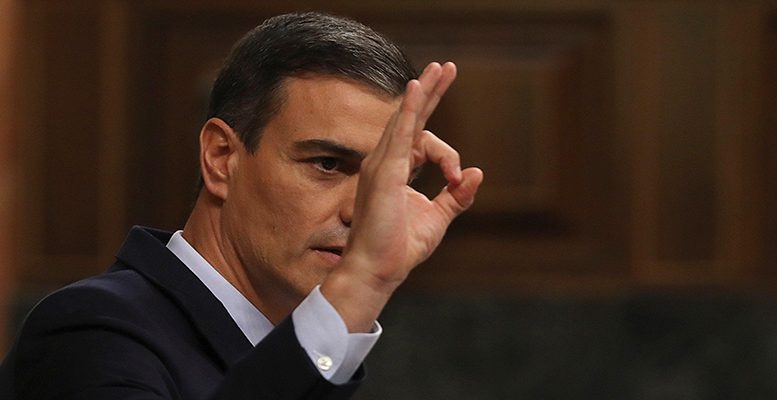Fernando González Urbaneja| Pedro Sánchez proposes an account of his political management full of successes; he contrasts with his predecessors and sees a Spain that had no horizon and was all black until his arrival and then a bright, sunny panorama as a result of his management. It must be assumed that he believes this and defends his work with enthusiasm. After his speech to the press at the Moncloa, one would have thought that the journalists would have stood up and applauded the president’s achievements. They did not. Nor did the voters last July, when they gave him second place and the same number of seats after he presented himself as the saviour of the country and the Constitution in the face of the risk of a fascist right wing.
The Spanish vote advises more prudence in the demonstrations and the recognition of something that did not work as its promoters intended. But President Sánchez is standing firm and is resistant to the most minimum self-criticism. He does everything well, and everything has positive effects once his prescriptions are applied.
Sánchez is right that the performance of the Spanish economy this year has been much better than all the forecasts of the experts. The American and European economies have also performed better, among other reasons, due to the containment of energy prices and the measures adopted at the supranational level: European funds and monetary policy.
Sánchez presents the Spanish economy as exemplary: the fastest-growing, the one that creates the most jobs, all of which is true in the table of data he chooses to present its merits, but if we look at another timeframe, the results are not so brilliant. The Spanish economy collapsed in 2020 and 2021, more than those of competing peers. There were reasons for this, among them the closure of tourism, which is a key sector of the Spanish economy. This collapse will be matched by a vigorous recovery in 2022 and 2023. The Spanish economy has been the slowest to recover to pre-pandemic levels.
One figure that the president does not consider is that of per capita income, which has stagnated with respect to the 2008 figures. This means that convergence with the EU average has fallen so far this century. The president highlights the level of employment: almost 21 million employees, according to the EPA (Labour Force Survey). This is a number that has never been seen before! But he ignores the fact that the population has grown by eight million in the last fifteen years. Employment has grown compared to the lows of the recent cycle, above all due to the migrant population, which has covered a large part of the 300,000 additional jobs in the hotel and catering industry and in other occupations. Presenting an unemployment rate of 12%, a large part of which is long-term unemployment, as an unprecedented success is an attempt to hide an uncomfortable reality.
And the same goes for social policy: aid and subsidies have multiplied, but the rate of poverty and inequality remains at rates similar to those of a decade ago. Less triumphalism and more committed realism would be more credible, especially for a person in need of credibility due to his own demerits.





